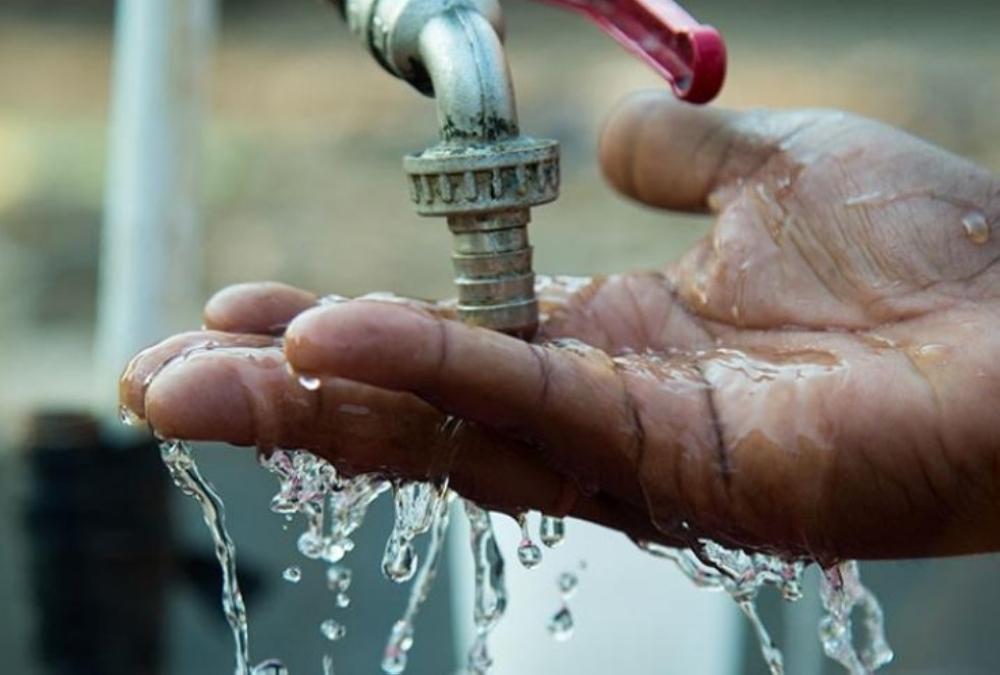Africa-Press – Rwanda. The government is advancing plans to ensure that citizens can safely drink water straight from the tap by 2029 to improve public health and reduce household spending on treated water.
This was announced on November 25 during a session with the senate committee on economic development and finance, where the Minister of Infrastructure, Jimmy Gasore outlined the roadmap to achieve tap-ready water nationwide.
Gasore explained that this goal will be pursued once the country reduces non-revenue water, which refers to water lost before reaching consumers due to leakages, outdated infrastructure and unauthorized usage.
“By 2029, once we reduce water loss, the next phase will follow, we plan to begin with a pilot project to assess what it requires in terms of cost and human resources. After receiving the technical feedback and finalising the concept, we will then move into planning and implementation in coordination with relevant institutions,” he said.
Currently, non-revenue water stands at 39.5 percent, which compromises both efficiency and quality.
Minister Gasore noted that although treated water leaving factories meets safety standards, public advisories still recommend boiling it before consumption due to possible contamination within the distribution network.
“Water treated at the plant is of high quality and can be safely consumed and it is also checked before distribution, however, to allow people to drink directly from the tap, we must guarantee consistent quality from treatment plants all the way to households,” he explained.
He added that very few countries have achieved this standard, and Rwanda has already begun learning from international success stories.
“There is a city in India that successfully implemented this system. It requires substantial investment, installing sensors at different points along pipelines to monitor chlorine levels and pH value in real-time and detect any changes during distribution,” he added.
To safely deliver tap water, Rwanda plans to replace old pipelines, upgrade distribution systems and introduce monitoring devices across the network.
“If the goal is for people to consume water directly from the tap, there must be automated systems capable of adjusting chlorine levels whenever they drop along the network,” Gasore said.
Supporting the Minister, Asaph Kabaasha, Chief Executive Officer of WASAC Group, confirmed that contamination primarily occurs during transportation from plants to households.
“The water produced at treatment plants meets quality standards, but some of it becomes contaminated due to old pipes. Additionally, when leaks occur, untreated water may enter the network before reaching consumers,” he said.
Kabaasha emphasized that reducing non-revenue water to 5 percent by 2029 will help maintain water quality throughout the distribution system.
“At that level, consumers could safely use water directly from the tap,” he noted.
Senator Penine Uwimbabazi urged the government to accelerate efforts so that citizens can safely drink tap water and reduce spending on bottled water.
“If people can drink tap water safely, it should be a top priority. It would help reduce the high costs households incur on drinking water,” she said.
Minister Gasore clarified that work to reduce non-revenue water will be executed in three phases including repairing leaking pipes promptly, ensuring all supplied water is billed and improving customer payment compliance.
“We are close to signing a contract with a contractor who will be compensated based on achieved results,” he added.
The initiative aligns with the Second National Strategy for Transformation (NST2, 2024-2029), which prioritizes access to safe water for all Rwandans.
According to Gasore, WASAC’s five-year plan includes building new treatment plants and expanding existing ones, increasing the daily water production capacity by 359,034 m3.
Additionally, water pipeline networks stretching 1,785.7 km are set to be rehabilitated.
Between 2017 and 2024, Rwanda constructed seven new water treatment plants, bringing the total number to 29.
For More News And Analysis About Rwanda Follow Africa-Press






